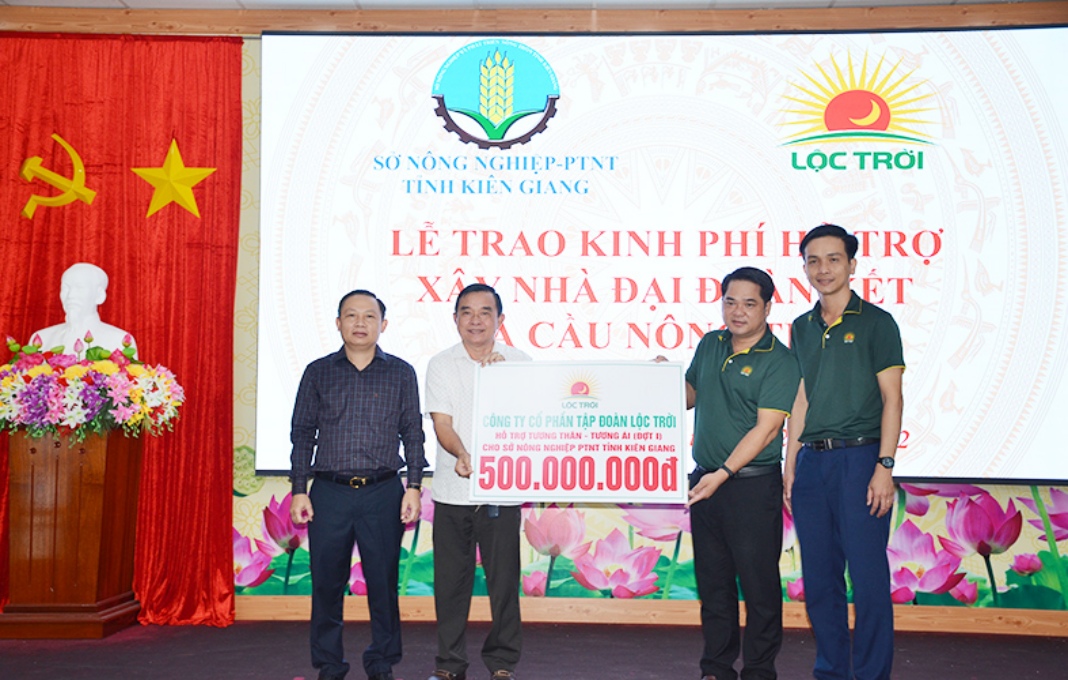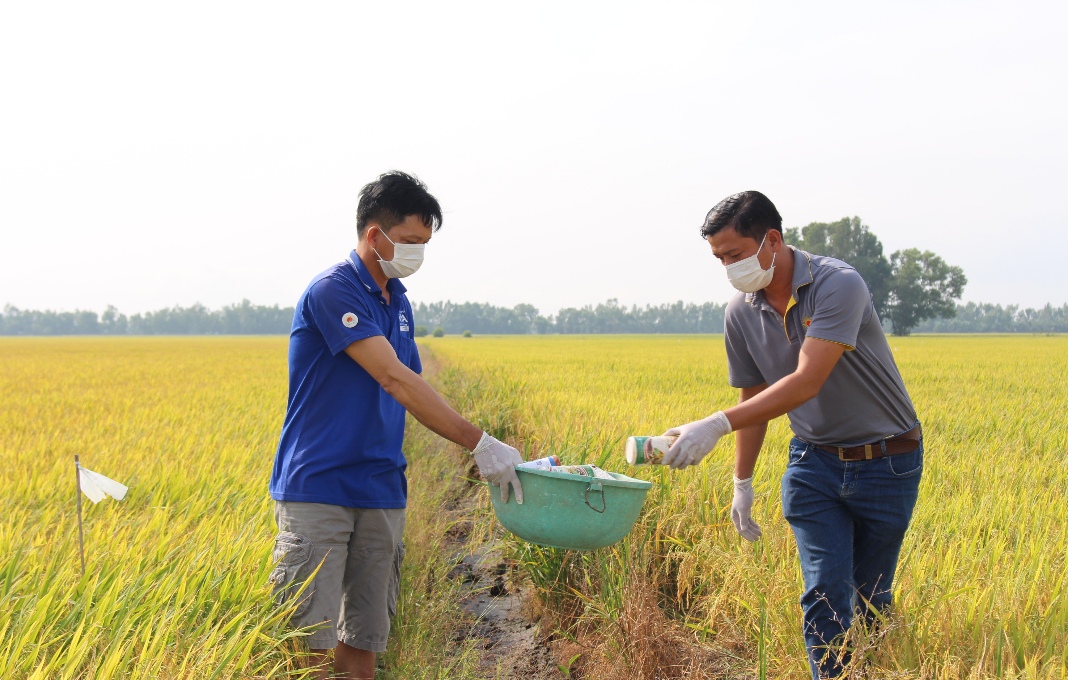Among agricultural service providers in Vietnam, Loc Troi Group stands out, not only because of its business scale, but also its strong commitment to accompanying farmers to sustainable development. With its sustainable value chain from research, production, trading of seed products, crop chemicals and biological – organic products, the company is among few enterprises that have cooperated with farmers to produce rice meeting the Sustainable Rice Platform (SRP) standards.
Sustainable rice farming
The SRP farming practice comprises a set of highly-stringent criteria and standards issued by the International Rice Research Institute and the United Nations World Food Program, and certified by Union Control and Global GAP.
The SRP practice includes 46 criteria under various measurement metrics, with a strong focus on economic, social and environmental values.
With the economic perspective, rice farming must meet productivity and production cost criteria, while the environmental criteria place emphasis on controlling the use of plant protection drugs. The social aspect in the set of criteria focuses on food safety for consumer and health for farmers, as well as women’s right and prevention of child labor.
Apart from the 46 criteria, SRP also attends to eight standards, including field management, water use, soil fertility management, pest control, and harvest and post-harvet issues.
Despite such stringent criteria and standards, Loc Troi Group has emerged as the first and only one enterprise in the world that has obtained the highest accreditation of SRP100 in three straight years from 2020 to 2022 recognized by Control Union.
The application of the SRP practice generates benefits for multiple stakeholders, according to Loc Troi Group.
For farmers, SRP helps them to apply an efficient farming practice for higher income, and enable them to approach a more transparent supply chain. In applying SRP, farmers are required to use drones in spraying plant protection drugs, treat straw post-harvest using a special fungal solution called Trico-DHCT, and update rice-field conditions online.
In rice processing, SRP helps processors better control product quality, improve their brand recognition, thus boosting sales.
A representative of Loc Troi Group says that the new model of SRP has helped ensure sustainable farming owing to a sharp reduction of chemicals and water use, scientific treatment of straw that helps reduce carbon emissions, and prevention of soil, water and air pollution.
In terms of social influence, SRP helps raise farmer’ awareness on environmental protection, and encourages them to shift from agricultural production to agronomics, from high yield to high tech, and pursue sustainability.
For its own sake, apart from its business efficiency in terms of rice production and provision of agricultural products and services, Loc Troi Group is also preparing to sell its carbon credits to other international partners.
Community programs
While embracing sustainable farming as the core of its corporate social responsibility (CSR) programs, Loc Troi Group has also gone to great lengths to support the community where it operates.
The company has launched the annual campaign to collect used bottles of plant protection drugs and other packaging items for treatment, with an expense amounting to VND2 billion in 2022 alone. Earlier, in November 2021, Loc Troi Group signed an agreement with the Plant Protection Department under the agriculture ministry to implement environmental protection programs in 2021-2025 with a total cost of VND180 billion.
Loc Troi Group has also financed research programs at various institutions like the Mekong Delta Rice Institute, Can Tho University, the National University HCMC, and An Giang University, which have resulted in various environment-friendly products like rinking pipes made of rice straw, production of gas from straw, and organic fertilizer from rice husk.
Last year, the company conducted multiple charity programs to enhance social welfare for locals and awarded scholarships and other education sponsorships nationwide with a total budget of VND7 billion. These included donation of 100 tons of rice for poor people in 50 localities nationwide, construction of 18 houses for poor people and a rural bridge in Kien Giang Province, installation of clean water systems worth VND1.2 billion at 17 schools in An Giang Province, and providing scholarships worth VND500 million for 220 students and textbooks for 1,000 students in this province.

Huynh Van Thon, board chairman of Loc Troi Group, says such CSR activities are integrated into the company’s business strategy, mirroring Loc Troi Group’s responsibility towards the society. “This social spirit is imprinted in the company’s mission,” he explains.
“Although such CSR activities do not yield business efficiency in the short term, the commitment to accompany farmers to sustainable development will bring about long-term values,” he remarks.









